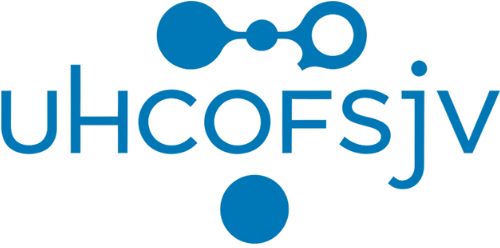In today’s world, people are becoming increasingly aware of the role food plays in their overall health. Chronic inflammation, often linked to numerous health conditions such as heart disease, arthritis, and even certain cancers, has become a significant area of focus. As a result, many are seeking ways to reduce inflammation through dietary changes. One such approach that has been gaining attention is the Deflame Diet.
But what is the Deflame Diet, and is it right for you? In this blog post, we’ll dive deep into the principles of the Deflame Diet, its benefits, potential drawbacks, and how to determine whether it’s a good fit for your lifestyle and health needs.
What is the Deflame Diet?
The Deflame Diet is a nutritional approach designed to help reduce chronic inflammation in the body. It was developed by Dr. David Perlmutter, a neurologist and author of several books on brain health, including Grain Brain and Brain Maker. His work focuses heavily on the connection between diet, inflammation, and the brain, specifically how chronic inflammation can contribute to neurodegenerative conditions such as Alzheimer’s disease, Parkinson’s, and other cognitive disorders.
The primary goal of the Deflame Diet is to eliminate or reduce foods that contribute to inflammation and replace them with those that help support the body’s natural anti-inflammatory processes. Essentially, the diet promotes whole, unprocessed, nutrient-dense foods that are rich in antioxidants, omega-3 fatty acids, and other compounds that help lower inflammation.
Core Principles of the Deflame Diet
The Deflame Diet is built on a few foundational principles:
- Elimination of Inflammatory Foods:
- The diet discourages the consumption of foods that trigger or worsen inflammation, such as processed foods, refined sugars, and artificial additives. Red meat, gluten, and dairy products are often limited or avoided, as they can contribute to inflammation in susceptible individuals.
- Emphasis on Anti-Inflammatory Foods:
- Foods that help combat inflammation, such as fatty fish (like salmon and sardines), nuts, seeds, leafy greens, and colorful fruits and vegetables, are emphasized. These foods are high in antioxidants, polyphenols, and omega-3 fatty acids, all of which have been shown to help reduce inflammation.
- Healthy Fats:
- The Deflame Diet promotes the consumption of healthy fats, particularly omega-3 fatty acids found in fish, walnuts, chia seeds, and flaxseeds. These fats help lower the levels of inflammatory molecules in the body.
- Low-Glycemic Index Foods:
- The diet encourages eating foods that have a low glycemic index, meaning they don’t cause significant spikes in blood sugar levels. Foods such as non-starchy vegetables, whole grains, and legumes are recommended.
- Gut Health:
- A key component of the Deflame Diet is promoting gut health. Dr. Perlmutter’s research highlights the importance of a healthy microbiome in reducing inflammation and supporting the immune system. This means including foods that support gut health, such as prebiotics (found in foods like garlic and onions) and probiotics (found in fermented foods like sauerkraut and kimchi).
Key Benefits of the Deflame Diet
Now that we understand what the Deflame Diet entails, it’s important to explore the potential benefits. For many individuals, adopting a diet that reduces inflammation can lead to numerous positive outcomes. Below are some of the most significant benefits associated with this dietary approach:
1. Reduced Chronic Inflammation
The primary aim of the Deflame Diet is to lower chronic inflammation in the body. Chronic inflammation has been linked to various health issues, such as autoimmune diseases, heart disease, obesity, and diabetes. By eliminating pro-inflammatory foods and focusing on anti-inflammatory foods, you may be able to reduce systemic inflammation and potentially alleviate symptoms associated with inflammatory conditions.
2. Improved Brain Health
One of the most significant advantages of the Deflame Diet, according to Dr. Perlmutter, is its potential to support brain health. Chronic inflammation is believed to be a key contributor to neurodegenerative diseases like Alzheimer’s, Parkinson’s, and multiple sclerosis. By reducing inflammation, you may reduce your risk of developing cognitive decline and other neurological issues. The diet’s focus on nutrient-dense foods rich in antioxidants and omega-3 fatty acids is particularly beneficial for the brain.
3. Enhanced Gut Health
The Deflame Diet encourages the consumption of foods that promote a healthy gut microbiome. Research suggests that gut health is closely linked to inflammation levels in the body, and an imbalance in gut bacteria can trigger or exacerbate inflammatory responses. By prioritizing gut-healthy foods like fiber-rich vegetables, fermented foods, and prebiotics, you can improve digestion, reduce inflammation, and potentially boost your immune system.
4. Better Heart Health
Chronic inflammation is one of the contributing factors to cardiovascular disease. The Deflame Diet’s emphasis on healthy fats, such as omega-3 fatty acids, helps improve cholesterol levels, reduce blood pressure, and support overall heart health. Additionally, the diet encourages antioxidant-rich foods that protect against oxidative stress, a key factor in heart disease.
5. Improved Joint Health
Many individuals suffer from joint pain due to inflammation, especially those with conditions like arthritis. By following the Deflame Diet, which eliminates inflammatory foods and promotes anti-inflammatory nutrients, you may experience reduced joint pain and stiffness. Foods like fatty fish, nuts, and leafy greens are known to help decrease inflammation in the joints.
6. Weight Management
Chronic inflammation is also linked to obesity and difficulty losing weight. The Deflame Diet’s focus on whole, nutrient-dense foods and its avoidance of processed foods may help with weight management. By stabilizing blood sugar levels and improving metabolic function, the Deflame Diet could make it easier for some people to lose weight or maintain a healthy weight.
Is the Deflame Diet Right for You?
Now that we’ve explored the potential benefits of the Deflame Diet, let’s look at whether this dietary approach is right for you. Like any diet, the Deflame Diet may be more suitable for some individuals than others. Here are some factors to consider when determining if the Deflame Diet is the right choice for your health and lifestyle:
1. Do You Struggle with Chronic Inflammation?
If you have been diagnosed with an inflammatory condition (such as rheumatoid arthritis, Crohn’s disease, or psoriasis) or if you experience symptoms like joint pain, fatigue, digestive issues, or brain fog, the Deflame Diet may be worth considering. This diet is specifically designed to target inflammation, which could help alleviate some of these symptoms.
2. Are You Interested in Brain Health?
If you’re concerned about cognitive decline or neurodegenerative diseases, the Deflame Diet might be a good option. The diet’s emphasis on omega-3 fatty acids, antioxidants, and gut health aligns with current research that links these factors to better brain health and a lower risk of conditions like Alzheimer’s disease.
3. Do You Want to Improve Your Heart and Gut Health?
If you’re looking to improve your heart health or gut health, the Deflame Diet could be an excellent fit. The diet’s focus on healthy fats, fiber, and gut-friendly foods makes it beneficial for reducing the risk of heart disease and supporting digestive health.
4. Are You Willing to Commit to Dietary Changes?
The Deflame Diet requires a shift toward whole, minimally processed foods. This may require eliminating or significantly reducing certain foods from your diet, such as gluten, dairy, and refined sugars. If you’re not ready to make these changes or if you’re not sure how to prepare meals that align with this diet, you might find it difficult to stick with it long-term.
5. Do You Have Specific Dietary Restrictions or Preferences?
If you follow a vegetarian, vegan, or gluten-free diet, the Deflame Diet can be adapted to suit those preferences. However, it may require more careful planning to ensure you’re getting all the necessary nutrients. For example, vegans may need to find plant-based sources of omega-3 fatty acids, such as chia seeds or flaxseeds, instead of fatty fish.
6. Are You Ready to Invest in Whole Foods?
The Deflame Diet emphasizes nutrient-dense whole foods, which may require a larger grocery budget, especially when it comes to purchasing organic vegetables, wild-caught fish, and high-quality fats like olive oil and avocado. If you’re used to a more budget-friendly or processed-food-based lifestyle, this diet may require more financial and time commitment.
Potential Drawbacks of the Deflame Diet
While the Deflame Diet offers numerous benefits, it’s important to consider some potential drawbacks as well:
- Restrictiveness: The diet can be quite restrictive, especially for those who are used to eating a wide variety of foods. Eliminating certain food groups may be challenging and may require a significant amount of meal planning and preparation.
- Cost: Whole foods, especially organic produce, wild-caught fish, and high-quality oils, can be expensive. If you’re on a tight budget, you might find it challenging to afford all of the recommended foods.
- Adherence: Like many diets, the Deflame Diet may be difficult to stick with long-term, especially if you have a busy lifestyle or enjoy eating processed foods and sugary treats. Long-term success will depend on your ability to make lasting changes to your eating habits.
Conclusion
The Deflame Diet is an excellent choice for individuals looking to reduce inflammation, improve brain health, support heart and gut health, and achieve better overall wellness. However, it may not be for everyone. If you’re willing to embrace dietary changes, focus on whole, nutrient-dense foods, and reduce or eliminate foods that promote inflammation, the Deflame Diet could provide significant health benefits. On the other hand, if you’re not ready to make these changes or prefer a more flexible approach to eating, you might find it difficult to follow.
Ultimately, whether the Deflame Diet is right for you depends on your health goals, lifestyle, and willingness to make long-term dietary adjustments. If you’re considering making this dietary shift, it may be helpful to consult with a healthcare professional or nutritionist to ensure it aligns with your individual needs.
Health.gov – The official site for U.S. government health initiatives and guidelines.
CDC (Centers for Disease Control and Prevention) – Provides a wealth of information about chronic inflammation and its relation to various diseases.
NIH (National Institutes of Health) – Offers resources on health topics, including inflammation and diet.
Tom Murphy is a passionate dietitian dedicated to helping others achieve a healthier lifestyle through balanced nutrition. With a deep love for sharing diet and wellness tips, he provides practical advice to inspire healthier eating habits. Tom believes in the power of food to transform lives and enjoys guiding others on their journey to better health.



